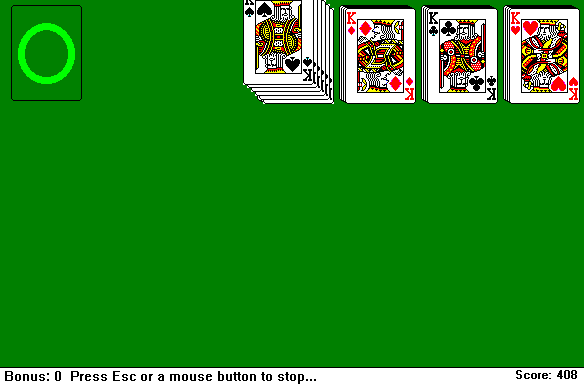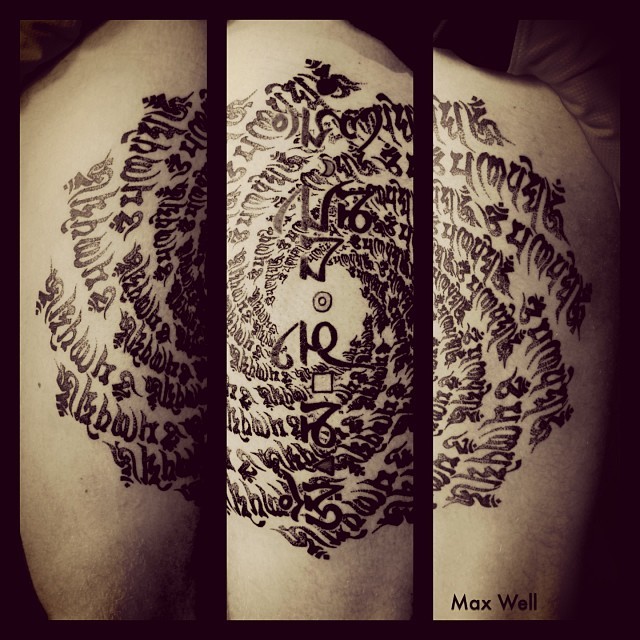Trending
Opinion: How will Project 2025 impact game developers?
The Heritage Foundation's manifesto for the possible next administration could do great harm to many, including large portions of the game development community.

Featured Blog | This community-written post highlights the best of what the game industry has to offer. Read more like it on the Game Developer Blogs or learn how to Submit Your Own Blog Post
We established previously that games are an artistic field in which art pieces can exist, let's now look at a most peculiar state of mind that games can induce or provoke. Let us delve together in a new movement in video games: Machinalism.

In the last instalment of this series (a whiiiile back because I’ve been up to a lot of other very exciting things, sorry :x) we talked about Justwalkingism, an art movement in video games whose founding principle was stripping games of action mechanics to let the player be manifested into the game world as-is, with little to no agency over their surroundings, creating a range of emotions and feelings singular to situations.
I took the easy road. People already think of these objects as art-games, because distance is often considered a key aspect of art as we know it. And those Justwalkingist games, which you can’t act upon, touch, or approach, are made mechanically distant from us, much like in a museum or gallery. This sacralised distance helps us consider art from afar, as objects worthy of our regard.
Another factor in explaining that perception is probably the generally slower pace of those experiences: freeing up the mind from thinking about objectives and goals and ways to game the game, one could assume that more space is created for the player’s mind to wander or ponder the poetry of the path of thy feet.
And now we take the road less traveled by: Machinalism in video-game art and talk about Free to Plays, Match 3s and other games that one mostly ignores in a debate about art and games.

Victory screen of the Windows 95 Solitaire
As a foreword: I wouldn't say “Candy Crush is art” but Machinalism as an art movement can be explored and defined by objects that are not œuvres but rather objects with similarities. So maybe, this one article should skip the “art” in “art movement”, but hey, it’s a series of articles and a relatively new medium so let’s skip the niceties and analyse the qualities of these Machinalist mechanics.
Let’s start with an experiment: Play a little bit of the ones we'll come to call Machinalist games : Bejeweld or the Windows Solitaire or Farm Hero Saga or any of the thousand similar games (basically search for either “candy” or “mania” or “saga” on your favourite app store and play some of the first thing that comes up). And when I say “similar games”, I think that we both know what kind of games I’m talking about. Not match-three or card games in particular, but you know… “those” games.
Some of us refer to them dismissively as “time wasters” others as “puzzle games” (clinging to the outdated 90s classification) but we can probably agree on one thing: those games have something in common even though it’s hard to pinpoint what exactly.
Go ahead, I'll wait for you to come back…
…So now that you played some of it, let’s talk: what can you say about your experience with this game?
Probably not much… Maybe nothing, right?
That’s the incredible power of those games: despite giving us control and agency, despite allowing us to talk to them, we remain mute, hushed in their unfolding. Games that aren’t without event but virtually without result or trace. Is that not strange?
What then are the characteristics of such an experience, so enclosed in the game or so abstract that we can play and go through it, but it remains impermeable to words. While overall we could make a broad statement "it was ok", the minute to minute gameplay cannot be told the way one would recount their last Starcraft game, or that level you went through in an FPS. They appear eventful but each instance of the game feels deeply unmemorable. But why?
It seems to me that these game make us change gear. We enter a state of half meditation where conscious thought is switched off, where we are but actions, fingers dancing on the screen. I is absent and bystanders will say the player is «lost in thought» as if, per the classical image of ourselves as spirits trapped within a flesh vessel, identity or consciousness could escape that envelope and be at one with the game while our body merely serves as passive gestural links between the two.

Breathe in and out in Forest by Mark Ivey
A minute ago, I was somewhere in between my past worries of yesterday and my anxieties about the future in a rattling subway wagon. But now that I have taken my phone? Now I am in the present whole, lost in the contextless resolution of level 32 of Gummy Drop or Yummy Mania. I am naught but the solver of this game, deeply immersed in it.
It must be terribly frustrating for the people wrestling with the creation of a deep immersion in the latest FPS campaign to see Frozen Free Fall create such a strong (albeit less memorable) feeling of engagement. And yes, a lot of the game industry spits on those games, yes, a lot of people think they are less deserving of our respect, but should we not consider them? At least to wonder for awhile how and why they can create such deep bonds with the player?
What seems to make those games so successful is their flow, this moment of suspension where things are never too hard nor too easy, where every parameter and metric needed to solve the puzzles are under my nose, where every move is without sense or meaning. No words, no need to verbalise or ponder , just stay here, ensconced in this deep lethargy of a playstate. Here: take those light-shows and cute sounds that’ll please your reptilian brain. It is funny to think how they seem to be the polar opposite of point and click games, whith their solutions hidden in very verbal, contextual and meaningful combinations, their clues scattered so the solution is always hidden and their actionless unfolding…
People often believe that meditation is just sitting on your ass thinking about white for a while until your brain blanks out. In fact, meditating is often reached another way: by repeating the same mundane action over and over until it becomes so trivial to one’s mind that the brain just wanders off.
That is the purpose of counting a rosary’s pearls one at a time between your fingers chanting a prayer or a mantra over and over and over and over… As you repeat your brain enters a stasis, suspending its usual activity it drifts away in another regime, on the edge of consciousness.

A tattoo of a mantra by artist MaxWell (disclaimer: he's the author's brother)
Hypnosis is also a candidate to enter a similar floating state: far from the manipulative «You are now my slaaaave» myth seen in movies, hypnosis is in fact a reasoned practice akin to meditation in a lot of ways.
Again, I’m not saying these games are artistic experiences. What I’m saying is that this experience regime, this fervent mechanised action-taking, enthralled in the present, could be fertile ground for mad artistic experiments, a sort of carpe diem (that’s latin for «living every single day as if you were a carp» (also, that's a joke, don't rush to comment that I'm an idiot, I'm already aware of that)).
The whole point of this series of articles is here: what are those games but a bunch of very different gameplays, sometimes hastily rallied under the hazy banner of “arcade” or “puzzle” games? Well, they share some common traits but not in their fabrication process, not in their gameplays, nor really in their business models… But there is something in that state we play them in that we easily recognise and that is what I call Machinalism.
In the long tradition of video game “innovations” many genres and titles have been blended with other mechanics from other established genres to try and create that “unique and totally new experience” bullet points so often boast about. The most obvious choice is to add onto the existing gameplay to avoid having to disrupt or even question it… So say you match things and they become a ressource: experience points or damage like in puzzle quest or building blocks as in Gridland etc. Then you use those points in completely different mechanics.
When I started working on inSynch’s game design (Them Games' last game) there was something I wanted to reconcile between the indescribable nature of these Machinalist games (which at that time I hadn’t started to think about) and the experience of getting lost in music. That was the intention: to invite the player’s mind into a trance-like state of heightened focus so they would drown in sound.

InSynch's a kind of guitar hero in which you make your own music happen… When pitching it, I often describe it as an experience akin to «playing with drops on a window» or «playing with the ripples on the water» : an exploration of the hidden rules and behaviours of the game which, given a hazy predisposition would feel poetic in nature.
These thoughts lead many a decision during the development of the game, such as the noticeable distance four lanes in the game. At first the four lanes ended up roughly in the very center of the screen, where player’s eyes would simply jump and twitch from one jumping pad to the next.
The greater distance was added to make the player look emptily at the middle of the screen rather than focusing on one lane or another and use their peripheral vision to spot the incomming beats. Getting physiologically lost in the musical landscape is the whole point.
Reaching down to the subconscious for play purposes is a lot of responsibility though, and it hasn’t alway been handled in the most respectful manner: crowd pleasers like fireworks and soundbites are all fine and dandy when you’re using them to convince someone they're having fun so that they purchase your game once and for all, but when they are used in a predatory fashion to pull a dollar out of you on every other level, it can be problematic, especially when people that are less in-controll of their urges might be in your public.
So this is it: Machinalism is a game movement that triggers a very peculiar state of mind, somewhere between meditation and hypnotism, dead traped in the moment of play. Much like Justwalkingism, we observe here the effect that Machinalism create much more than its mechanics or how that state of play is crafted.
If you know games that use that state of mind in an interesting way, please do share them in the comments!
Small and abstract repetitive actions, yeilding unpredictable results, fluid gameplay, simple mechanics, all coming together to take you away on a zen trip to emptiness.
Read more about:
Featured BlogsYou May Also Like